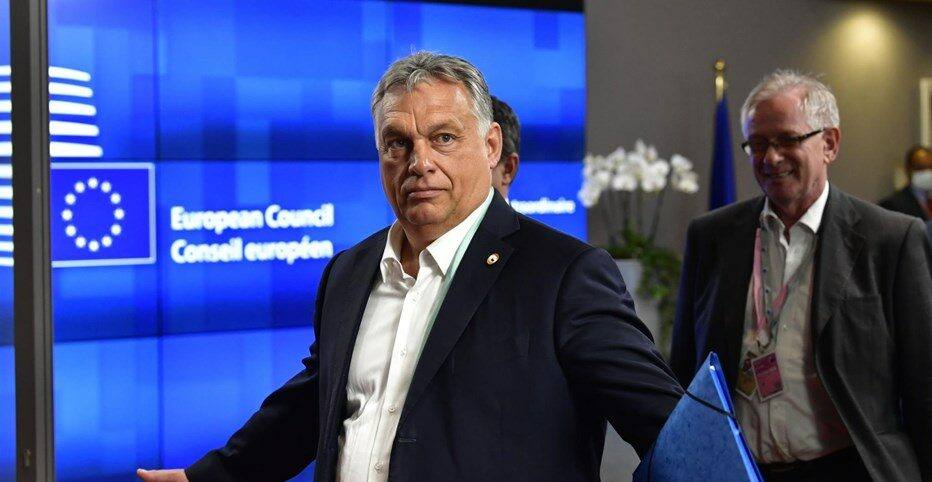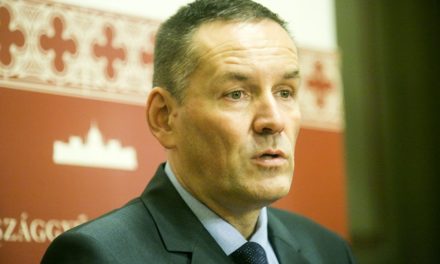National conservatism produces political leaders who love their country more than themselves; this makes it unique among political ideologies, writes Sven R. Larson on the European Conservative website.
The first rule of politics is to never give the government powers that we wouldn't give to our most formidable political opponent.
If there is a government institution that has proven this, it is the European Union. Forged in the uncertainty of the end of the Cold War, the EU was built in the peaceful, prosperous 1990s and was originally intended to promote freedom, trade and human ingenuity.
Since then, the EU has been completely transformed.
Today, it is increasingly a totalitarian entity that tries to impose moral values on its member states—values that run counter to basic conservative principles. A good example of this are the tensions between Brussels and Warsaw and Budapest, which would not exist if the EU had remained faithful to the goal that gave birth to the union in Maastricht in 1992.
The aphorism that all government power can be abused is not new. Human history is full of examples of how power has corrupted leadership. But history also provides examples of how the sword of power can be used responsibly, and the difference is usually simple.
Leaders who love their country more than themselves put the interests of their own nation first.
In too many countries today, political leaders do not live by this principle. In some cases, such as the North Korean dictator or the tyrant running Venezuela, the leaders' disregard for their nation's well-being is based on personal corruption. In other cases, as in the case of the European Union, the values placed by politicians above the nation-state are of a globalist nature.
There are perceived virtues in rising above the interests of one's own country that sometimes lead politicians to label their nationalist opponents as "populists".
The rise of the European Union, including its transformation into a superstate structure with globalist ambitions, has inspired politicians in EU member states whose actions align well with those ambitions. In this way, the EU served to reinforce a leadership tendency that was still little known to the world in the last century:
of national political leaders who put the well-being of their own nation behind other interests.
Although this anti-national prejudice is not openly expressed, it always comes to light when confronted with leaders whose preferences show the exact opposite. One of the many examples is the debate stirred up by European leaders over judicial reforms in Poland, for which Warsaw has been heavily criticized and even fined by the European Court of Justice.
Another example is the dispute with Hungary, because it refuses to join the prevailing European trend in the area of LGBT legislation.
While the political leadership in Hungary aimed to protect minors from sexual propaganda, the leaders of other EU member states spoke out en masse to condemn the Hungarian government.
If they had put the interest of the nation before their political interests, they would have expressed their respect for the sovereignty of Poland and Hungary in all moral and political matters. Furthermore, they would have used that same national sovereignty to pass whatever laws their own people wanted.
Prime Minister Viktor Orbán responded intelligently to the international criticism when he called it an expression of colonialism. He was too kind.
Critics of Viktor Orbán's conservative government and policies went so far as to baselessly claim that Hungary is not a fully democratic country. They did this solely because Hungarian laws restrict the distribution of sexual content to children.
By dragging Hungary's democracy into the debate about LGBT rights, Europe's slanderous Hungarian haters are setting an excellent example of those politicians who elevate themselves above national sovereignty and even oppose it.
They don't even have to write their contempt for the nation: they act as if they put other values before the prosperity, freedom and eternity of their own country.
It is important to distinguish those politicians who rise above the interests of their nation from those who simply want to participate in international cooperation in order to promote the interests of their own country. The metamorphosis of the European Union symbolizes the trend in political leadership from the latter to the former. This tendency made it morally permissible, even virtuous, for national leaders to put their country second.
It also resulted in a shift in the use of government power, from national interests to global interests.
In the case of the European Union, this has taken on absurd proportions: it is increasingly expanding its powers without a nation-state base. It rests on a synthetic basis, which was not created by the organic process of the formation of nation-states, but by political will.
When national leaders adopt the same governing ideals as supranational institutions, they shift their moral loyalties upward from the nation-state. In doing so, they not only strengthen political ideas opposed to the nation-state, but also undermine the well-being and stability of their own nation, and even – in extreme cases – even its survival.
Under normal circumstances, such as peace, political accountability, and economic stability, a nation-state can still survive under the sloppy boots of its globalist government. However, when a crisis situation arises and it falls to the given government to manage it, its moral loyalty is moved to a place where the long-term well-being of the nation is irrelevant. Therefore, when leaders without national loyalty respond to a crisis, their response is aligned with their own interests, not the interests of their country.
The war in Ukraine showed the inability of globalist governments to act in national interests.
When Russia invaded Ukraine in February 2022, a wave of anti-national decisions swept through many European capitals, and trade and financial sanctions were problematic.
They were not aimed at protecting national interests, but at escalating the conflict.
It was foreseeable that the sanctions would have a negative impact on European economies; energy supply has become uncertain where the world's most reliable energy systems once reigned.
A number of Western leaders have made more or less general commitments to arm Ukraine. In some cases, these commitments are understandable for historical reasons. Poland is a good example of this, and a good example of how political leaders can put their own country first while making a judicious but unwavering commitment to support Ukraine. Unfortunately, the government in Warsaw is an exception: most of Europe is run by globalist leaders whose commitment to Ukraine is not necessarily as nationalist as we see in Poland.
This led to the situation that Europe is currently in a worse position in terms of self-defense than it was on the day of the Russian invasion.
The depletion of military resources cannot be defended on the grounds that it will curb the Ukrainian war within the country. If the logic of a well-equipped army works in favor of Ukraine, it also applies to EU countries, but with the opposite sign. Since a strong military is a deterrent, a depleted military is just the opposite.
The national interest in self-defense has once again given way to a supranational interest in participating in a foreign war.
And that raises alarming questions about how far they're willing to go.
Much of America and Europe share the problem that their globally oriented leaders are gradually losing control over the consequences of war. However, this error goes deeper than the last election: all the way to the first political rule mentioned above. The US Congress has given the president significant powers to commit US military resources to conflicts around the world. Many European nations have similar legal provisions that allow such engagements.
These powers should have been used for the benefit of their own nation, and if the politicians had kept the strong national interests in mind, there would have been no abuse of these powers. It is very likely, for example, that Trump - who is well known for his "America First" foreign policy doctrine - would have taken a much more restrained approach to the Russian-Ukrainian conflict than Biden did.
The lesson is painfully clear: If this war is to end without a global nuclear catastrophe, voters worldwide must seize every possible means to impose limits on the powers that start, escalate, and sustain wars.
Once such restrictions are in place, they can be responsibly extended to limit other government powers. For example, it would be good to secure our children, our schools and our communities from all kinds of immoral exploitation.
All this is not as difficult as it seems. We already have an ideology in our hands that can lead us to a future with less conflict, stronger nations, greater prosperity, and a resurgent spiritual dimension to our lives. And this is national conservatism, which is rooted in the nation-state and stands firmly in eternal civilizational values.
As such, it is the strongest bulwark that human civilization can muster against conflicts that would otherwise escalate out of control.
And most importantly, national conservatism produces political leaders who love their country more than themselves.
Featured image: John Thys/Reuters













